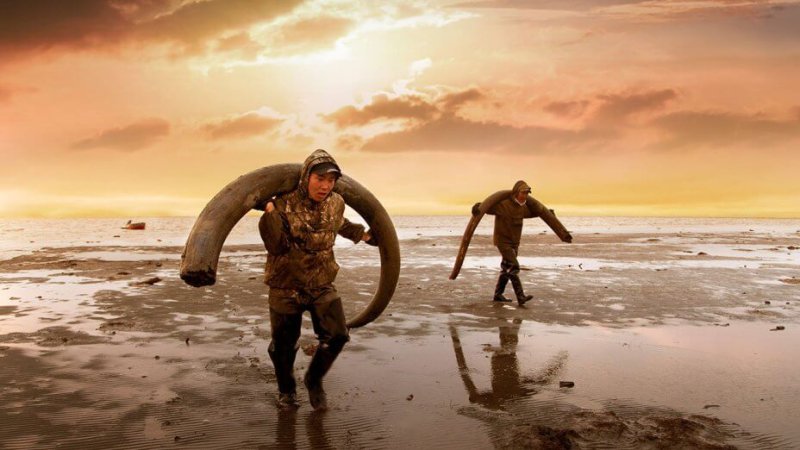“How did you manage to set free that terrible devil?” asks a Yakut poem, solemnly intoned near the beginning, and again at the end, of the documentary Genesis 2.0, which [ opened January 2] in New York. The film is a cautionary tale that winds two parallel arcs together like the strands of an artful double helix. In one, codirector Maxim Arbugaev follows Yakut “hunters” as they search remote islands in the north of Siberia for mammoth tusks to sell; in the other, director and producer Christian Frei documents a genetic engineering competition in Boston and follows the director of Russia’s Mammoth Museum in his quest to find a living mammoth cell that will, we’re told, allow the beast to be cloned.
As the Yakut poem indicates, the film is a warning.
…
Cloning the mammoth, we learn, is “a rehearsal for something much bigger”—taking control of evolution itself—but with what consequences? In the post–CRISPR-babies era, it may not be difficult for viewers to fill in the blanks for themselves.
…
As [Harvard geneticist George] Church tells us in the film, “synthetic biology is so recent and it’s happening so quickly, we don’t really know what it is yet.” Yet the film invites us to take a step back from the daily drumbeat of incremental scientific discoveries and ponder whether we are indeed unleashing a devil.
Read full, original post: Genesis 2.0 Is a Beautifully Shot, Cautionary Tale About Biotechnology































